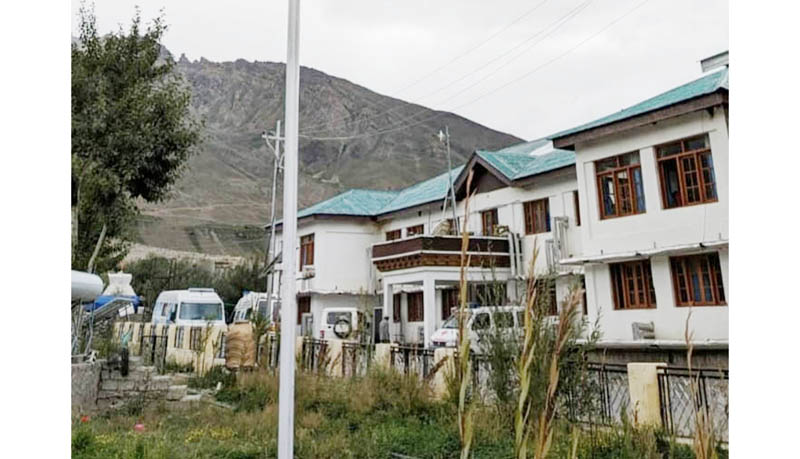Residents of the Zanskar region in the Union Territory of Ladakh find themselves compelled to traverse arduous distances across formidable terrain to access surgical interventions, owing to the inadequacy of staff and facilities at the local health centre. The Zanskar sub-division, nestled amidst the formidable Greater Himalayas, encompasses nearly 25 scattered villages and is heavily reliant on the solitary Community Health Centre (CHC) situated in Padum. This CHC caters to approximately 13,000 inhabitants, but regrettably, given the rugged topography and harsh climatic conditions of the region, healthcare facilities fall significantly short of meeting the population’s pressing needs. Locals have no choice but to undertake perilous journeys, covering hundreds of kilometres to Kargil or Leh, even for minor surgical procedures.
The dearth of healthcare facilities in the remote Zanskar region presents a formidable challenge for its residents. This geographically isolated and sparsely populated area grapples with the inherent difficulties of delivering healthcare services, exacerbated by its high-altitude terrain, which introduces unique health-related complexities. Adding to the complexity is a dire shortage of medical practitioners and healthcare professionals, primarily driven by the daunting working conditions and the absence of compelling financial incentives to attract talent. In Zanskar, the scarcity of specialised healthcare services compounds the dilemma, compelling patients to embark on arduous journeys spanning extensive distances in pursuit of specialised medical attention. The healthcare infrastructure within Zanskar languishes in a state of disrepair, characterized by dilapidated facilities bereft of essential equipment and supplies. The exorbitant cost associated with healthcare, particularly for specialised treatments, further exacerbates the predicament, rendering it financially unattainable for many individuals.
While the administration has initiated efforts to ameliorate the healthcare situation in Zanskar with investments in infrastructure enhancement, tangible improvements remain elusive. The stark reality persists that healthcare infrastructure projects appear more as symbolic structures than operational entities, lacking vital components such as functional operation theatres, blood banks, and the presence of specialised physicians, thereby rendering them ineffective. The gravity of the situation is acutely evident in scenarios where expectant mothers must undertake treacherous journeys to Leh or Kargil for childbirth, a precarious predicament that underscores the urgency of rectifying this dire healthcare void. The most vulnerable in society, the financially disadvantaged, suffer disproportionately under these circumstances. The deficiency in residential quarters for medical practitioners to endure the bone-chilling temperatures plummeting below -20 degrees Celsius further compounds the healthcare challenges, leaving these dedicated professionals vulnerable.
Almost four years have elapsed since Ladakh achieved Union Territory status, leaving little room for excuses regarding the persisting lapses in providing fundamental healthcare facilities to the multitude of Zanskar’s inhabitants. The absence of concrete plans and detailed project reports only exacerbates the situation, suggesting a profound disconnect between the authorities and the palpable suffering endured by the people of Zanskar, particularly during the brutal winter months when travel becomes virtually impossible. As an exigent interim measure, it is imperative to marshal all available resources to ensure the operational continuity of CHC Padun during the impending harsh winters. The winter season represents a period of paramount significance, given the inaccessibility of numerous Zanskar villages during its peak, thereby underscoring the dire necessity for an immediate and proactive response.
Establishing a robust heating infrastructure at the hospital and its associated staff quarters is an indispensable endeavour, transforming it into an all-weather facility capable of functioning seamlessly during the unforgiving winter months. The provision of comprehensive healthcare services to the populace is an inviolable obligation of the administration, and expeditious resolution of this pressing issue stands as an imperative mandate. The exigency of this situation demands immediate attention, recognising that the well-being and healthcare accessibility of the community hinge upon these measures being promptly instituted. It is incumbent upon the authorities to grasp the gravity of this situation and prioritise the well-being and healthcare needs of the people.
Trending Now
E-Paper


